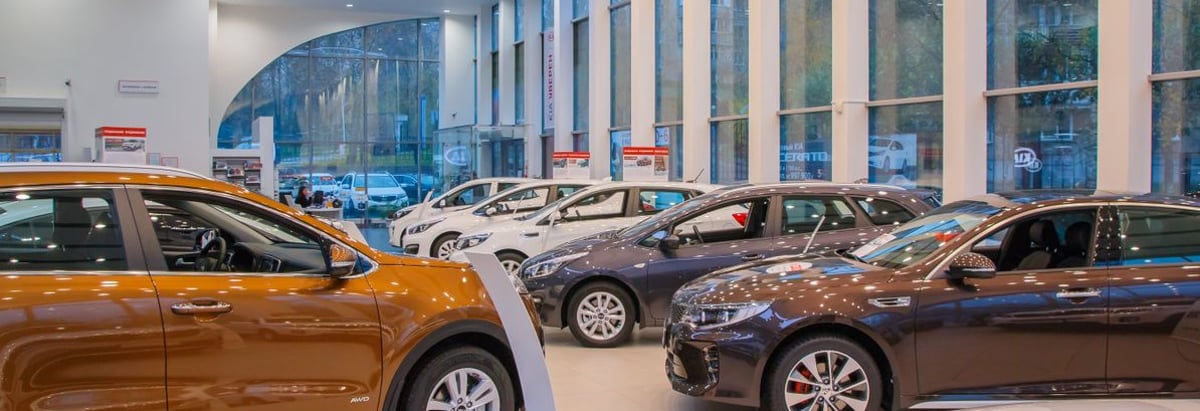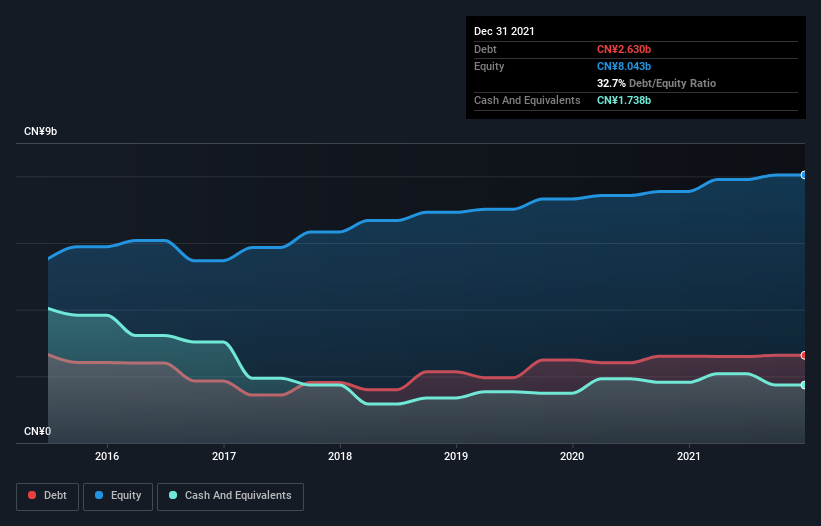
Warren Buffett famously said, 'Volatility is far from synonymous with risk.' So it might be obvious that you need to consider debt, when you think about how risky any given stock is, because too much debt can sink a company. We can see that China Harmony Auto Holding Limited (HKG:3836) does use debt in its business. But the real question is whether this debt is making the company risky.
Why Does Debt Bring Risk?
Debt assists a business until the business has trouble paying it off, either with new capital or with free cash flow. In the worst case scenario, a company can go bankrupt if it cannot pay its creditors. However, a more common (but still painful) scenario is that it has to raise new equity capital at a low price, thus permanently diluting shareholders. By replacing dilution, though, debt can be an extremely good tool for businesses that need capital to invest in growth at high rates of return. The first step when considering a company's debt levels is to consider its cash and debt together.
See our latest analysis for China Harmony Auto Holding
What Is China Harmony Auto Holding's Debt?
The chart below, which you can click on for greater detail, shows that China Harmony Auto Holding had CN¥2.63b in debt in December 2021; about the same as the year before. However, because it has a cash reserve of CN¥1.74b, its net debt is less, at about CN¥891.8m.

How Strong Is China Harmony Auto Holding's Balance Sheet?
We can see from the most recent balance sheet that China Harmony Auto Holding had liabilities of CN¥4.36b falling due within a year, and liabilities of CN¥850.7m due beyond that. Offsetting this, it had CN¥1.74b in cash and CN¥380.6m in receivables that were due within 12 months. So its liabilities total CN¥3.09b more than the combination of its cash and short-term receivables.
This is a mountain of leverage relative to its market capitalization of CN¥4.62b. This suggests shareholders would be heavily diluted if the company needed to shore up its balance sheet in a hurry.
We use two main ratios to inform us about debt levels relative to earnings. The first is net debt divided by earnings before interest, tax, depreciation, and amortization (EBITDA), while the second is how many times its earnings before interest and tax (EBIT) covers its interest expense (or its interest cover, for short). The advantage of this approach is that we take into account both the absolute quantum of debt (with net debt to EBITDA) and the actual interest expenses associated with that debt (with its interest cover ratio).
China Harmony Auto Holding's net debt is only 0.70 times its EBITDA. And its EBIT covers its interest expense a whopping 16.9 times over. So we're pretty relaxed about its super-conservative use of debt. On top of that, China Harmony Auto Holding grew its EBIT by 36% over the last twelve months, and that growth will make it easier to handle its debt. The balance sheet is clearly the area to focus on when you are analysing debt. But ultimately the future profitability of the business will decide if China Harmony Auto Holding can strengthen its balance sheet over time. So if you're focused on the future you can check out this free report showing analyst profit forecasts.
Finally, a business needs free cash flow to pay off debt; accounting profits just don't cut it. So it's worth checking how much of that EBIT is backed by free cash flow. Over the last three years, China Harmony Auto Holding reported free cash flow worth 17% of its EBIT, which is really quite low. That limp level of cash conversion undermines its ability to manage and pay down debt.
Our View
Both China Harmony Auto Holding's ability to to cover its interest expense with its EBIT and its EBIT growth rate gave us comfort that it can handle its debt. On the other hand, its conversion of EBIT to free cash flow makes us a little less comfortable about its debt. Considering this range of data points, we think China Harmony Auto Holding is in a good position to manage its debt levels. But a word of caution: we think debt levels are high enough to justify ongoing monitoring. When analysing debt levels, the balance sheet is the obvious place to start. However, not all investment risk resides within the balance sheet - far from it. For instance, we've identified 2 warning signs for China Harmony Auto Holding that you should be aware of.
At the end of the day, it's often better to focus on companies that are free from net debt. You can access our special list of such companies (all with a track record of profit growth). It's free.
New: AI Stock Screener & Alerts
Our new AI Stock Screener scans the market every day to uncover opportunities.
• Dividend Powerhouses (3%+ Yield)
• Undervalued Small Caps with Insider Buying
• High growth Tech and AI Companies
Or build your own from over 50 metrics.
Have feedback on this article? Concerned about the content? Get in touch with us directly. Alternatively, email editorial-team (at) simplywallst.com.
This article by Simply Wall St is general in nature. We provide commentary based on historical data and analyst forecasts only using an unbiased methodology and our articles are not intended to be financial advice. It does not constitute a recommendation to buy or sell any stock, and does not take account of your objectives, or your financial situation. We aim to bring you long-term focused analysis driven by fundamental data. Note that our analysis may not factor in the latest price-sensitive company announcements or qualitative material. Simply Wall St has no position in any stocks mentioned.
About SEHK:3836
China Harmony Auto Holding
An investment holding company, engages in the sale of automobiles in Mainland China.
Slightly overvalued with imperfect balance sheet.
Market Insights
Community Narratives



